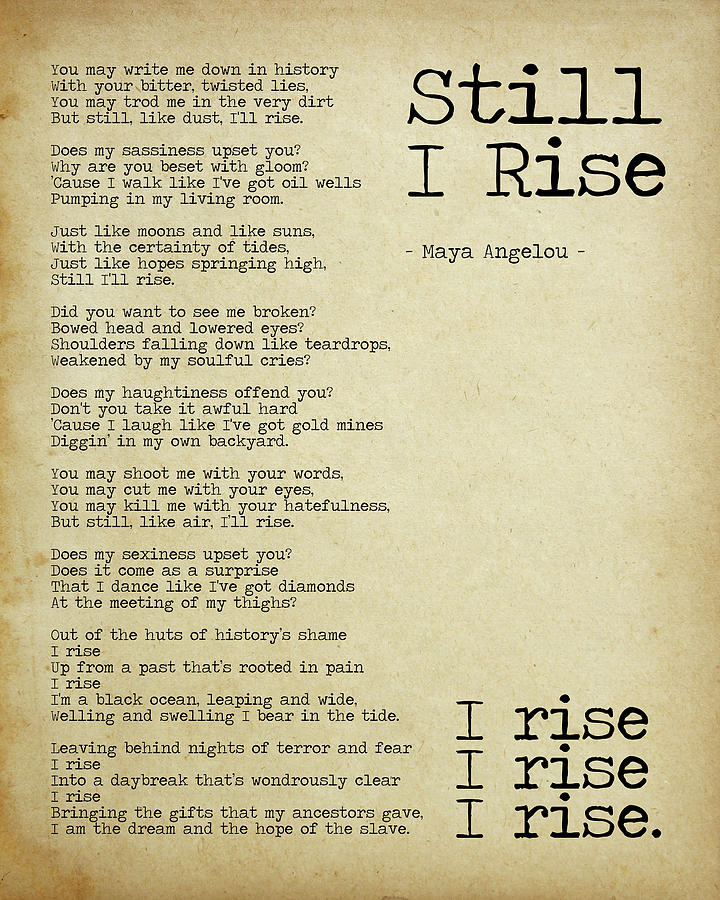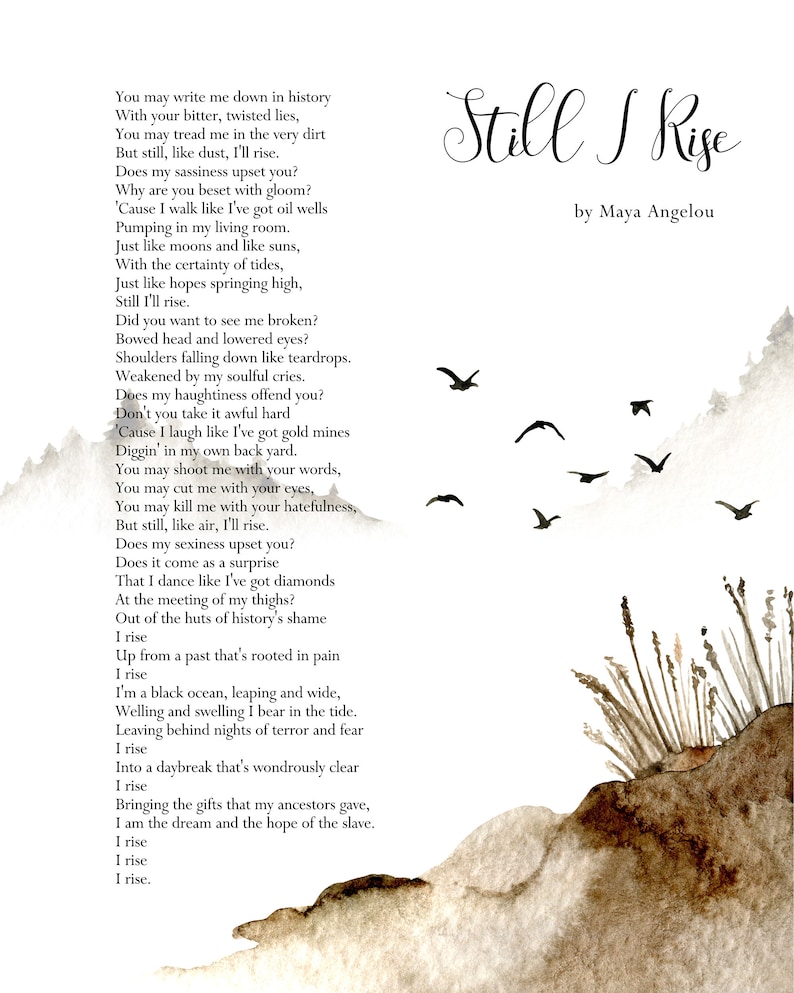

Throughout this poem, Angelou is showing both anger and confidence.

This was not just any poem, it was also a promise she made to herself that her success would not be determined by hatred and negativity that goes through society. When Angelou wrote this poem, it was on a personal level. The poem describes how a black woman is willing to speak up for herself and the fellow African American people especially black women. The first word “You” from the poem is significant. In fact, by using apostrophes to identify the oppressor character as ‘you,’ Angelou implies the reader may also be participating in oppressive social structures and attitudes. To me, this stanza shows how much respect and confidence she has despite the difficulties. ‘You may write me down in history with your bitter, twisted lies, you may trod me in the very dirt But still, like dust, I’ll rise’. Using the expression ‘still I rise’ she is declaring that whatever challenge comes her way she will face it and she will continue to rise from it. Angelou shows signs of repetition throughout the poem, for example, she repeats the phrase ‘still I rise’. In the poem, the use of different literary devices was used such as repetition, rhyme, symbolism, imagery, hyperbole, metaphor, rhetorical question. In this poem “Still, I Rise” by Maya Angelou an African American female poet that provides an interesting blend of tones: humorous and defiant, comical and furious, self-assured and bitterness. The words of Because I could not stop for Death have been set to music on numerous occasions, most notably by the acclaimed USA composer Aaron Copland.īut like all the poetry in this list, it can be enjoyed just as well in its original form, read alone, in your favourite chair, just allowing those words to wash over you.ĭid your favourite poem not make the list? Tell us about your choice at.

It involves a narrator taking her final journey in life by carriage, accompanied by Death, who appears as a friendly companion on the ride.ĭickinson is considered one of America’s greatest poets and this work in particular affirms her legacy. The lyrical nature of Because I could not stop for Death often singles it out as one of Dickinson’s finest works. Spending much of her life as a recluse in her Massachussetts home, her collection of almost 1,800 poems was discovered by her younger sister after Dickinson died in 1886 and and published four years later. The 19th-century American poet only rose to prominence after her death. īecause I could not stop for Death by Emily Dickinson “Because I could not stop for Death - / He kindly stopped for me - / The Carriage held but just Ourselves - / And Immortality.” Students at Manchester University painted over the words of If in protest when it appeared on the walls of their student union in 2018, replacing it with Maya Angelou’s Still I Rise.

Kipling has been criticised in more recent times over what are seen as his controversial views on race. Serena Williams also narrated a version for International Women’s Day in 2017, replacing the word ‘man’ with ‘woman’ throughout. Its impact has sent ripples throughout popular culture with everything from The Simpsons to Apocalypse Now referencing Kipling’s verse at some point.Īt the close of the 1998 World Cup, BBC Sports presenter Des Lynam narrated the poem over footage of 18-year-old England striker Michael Owen making an impact on the tournament. If was his most famous poem, published in 1910 and written in the form of advice passed down from father to son. If by Rudyard Kipling “If you can meet with Triumph and Disaster / And treat those two impostors just the same ”Įqually renowned for literary works including The Jungle Book and The Man Who Would Be King, Rudyard Kipling was also a popular poet and journalist in the late19th and early 20th century.


 0 kommentar(er)
0 kommentar(er)
